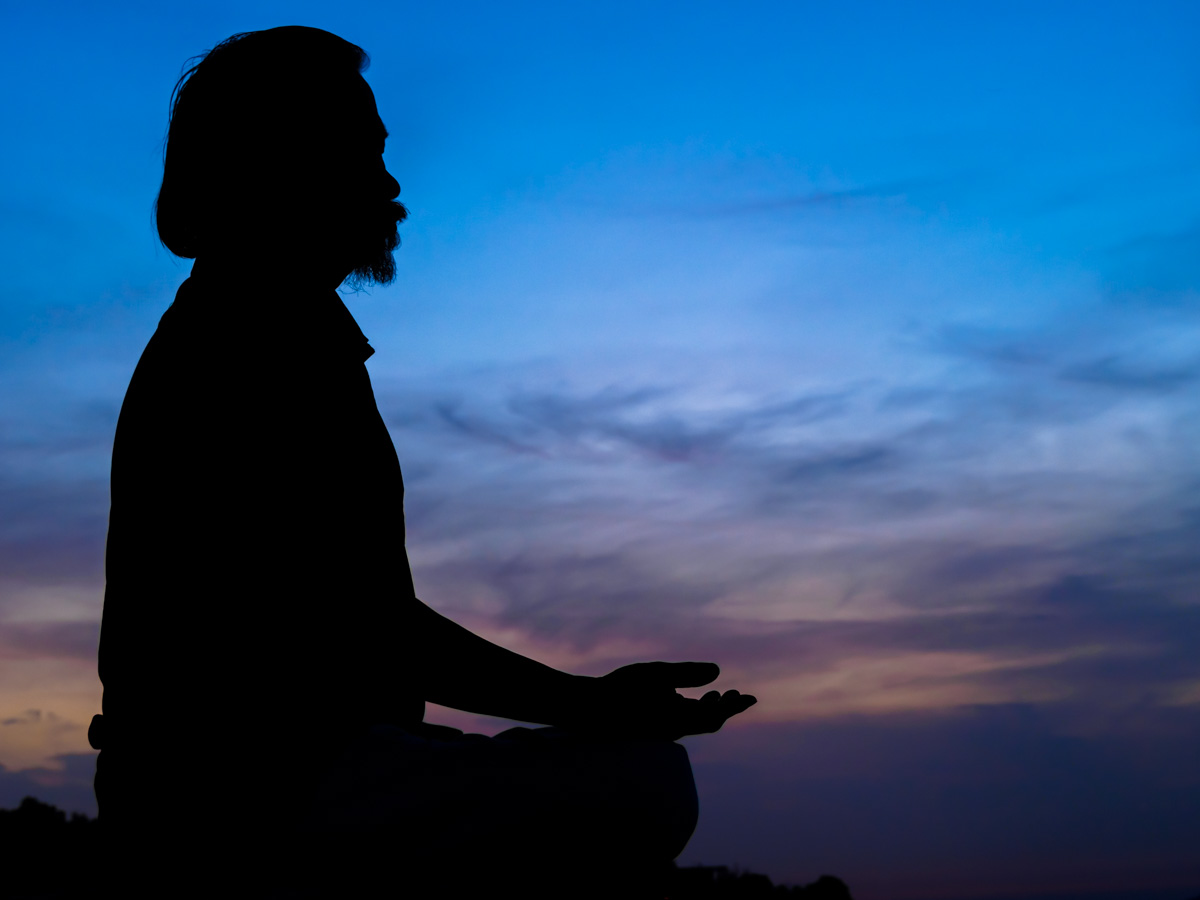
“Why do you want to learn meditation?” I often ask this of my students, before teaching them a formal meditation practice, which includes their personal mantra.
And over the years I’ve gotten quite a variety of responses. I find almost any reason is good. Well, almost every reason.
Years ago in Israel I met a young man from the Philippines, and as we sat in a quiet room, preparing for his personal initiation into meditation, I asked him: “Why do you want to learn meditation?”
He answered, simply and promptly: “So I can control my wife.”
I was nonplussed. It certainly was an original answer! I eventually got my point across to him: meditation is not about controlling others, but about gaining self-control.
“It’s a greater miracle for a modern American to sit on a cushion for 40 minutes than for an Indian swami to live 500 years.”

Famous Danish yogi in blissful meditation. Photo credit: Premasagar, https://www.flickr.com/photos/dharmasphere/
And yes, meditation can help you move past anxiety, nervousness and many types of stress.
Looking at the issue more broadly, some of the main reasons for meditation are to find clarity of mind, inner peace and composure, and to find the meaning of life.
Clarity of mind is necessary to achieve inner peace, and to find deeper meaning in life.
A story I use explains the benefits of clear thinking. Imagine you’re on a small boat at sea heading towards the nearest harbour, which you see in the distance. Shouldn’t be too hard, hey? But what if your sail is torn, or you’ve lost one oar, or the sea is rough, or there’s a strong wind going out from the shore and it’s getting dark? Or all of these.
Any takers on how likely it is you’ll get to the harbour?
On the other hand, what if it’s a clear day, there’s a mild wind blowing toward the shore, you have good sails and both oars, the sea is mild and you’re a pretty good sailor?
Almost for sure you’ll reach the harbour.
Our mind is like the sailor and his boat. If we have the discipline to keep both our mind and body in ‘ship-shape’ we’ll make better choices in life. If we have a sense of a long-term goal, we also may choose to train the mind with ideas to support such a quest. And this increased clear thinking helps us to deal with stressful situations in a calm manner.
Stress and poor health are two factors I often see which limit people’s ability to meditate. A poet friend of mine, Sparrow, recently summed up some of our modern difficulties with meditation: “It’s a greater miracle for a modern American to sit on a cushion for 40 minutes than for an Indian swami to live 500 years.”

Meditating on a skateboard for 40 minutes?, New York Photo credit: Tina Leggio, https://www.flickr.com/photos/tinaleggio/
Poets are not bound by statistics, but in some sense his words ring true, not only for Americans but for people almost anywhere.
My most simple response to Sparrow would be: don’t meditate for 40 minutes. Start with five or ten minutes. Find a good teacher, rather than just a book. Teachers can guide you according to what you need, whereas a book can’t respond directly to your needs or situation. As a writer I encourage people to read, but in the case of meditation, reading is a helping hand, but can’t give you personal instruction.
Before committing yourself to meditation, reflect on your reasons for doing it. If you just want to control your spouse, well, meditation can’t help. But it can help you understand the need for self-control. It will certainly help you understand what you need to do to grow up and grow deeper.
*Dada’s book, “Meditation: Searching for the Real You” is available at any online bookstore